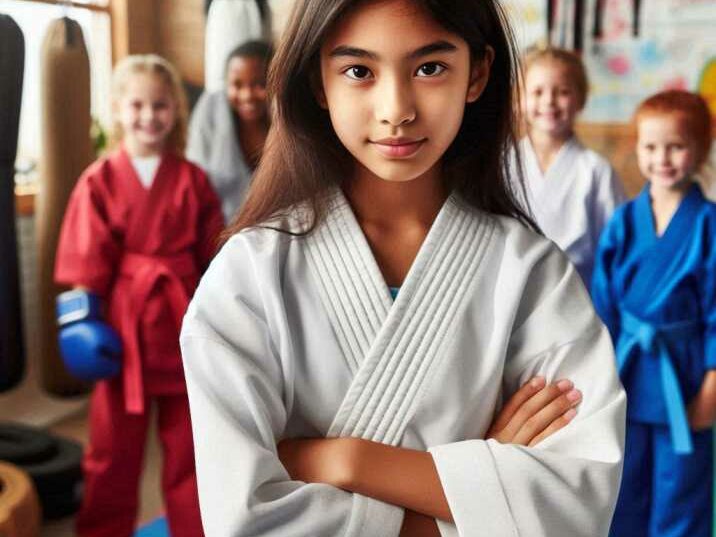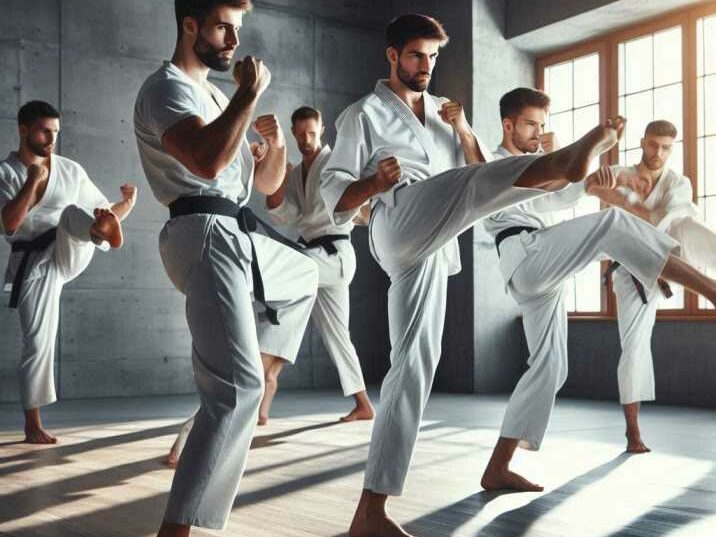What are the Key Benefits of Martial Arts Training in Preventing Bullying?
Introduction
Table of Contents
In this article, we’ll explore the key benefits of martial arts training in preventing bullying. Bullying is a significant issue, affecting many individuals, especially children. Martial arts offers not only physical skills but also mental and emotional empowerment, making it an effective tool against bullying.
What is Bullying?
Bullying Definition:
- Definition: Bullying refers to the repeated and intentional aggressive behavior directed towards another person.
- Forms: It can manifest in various forms, such as physical bullying (hitting, pushing), verbal bullying (name-calling, teasing), social bullying (excluding, spreading rumors), and cyberbullying (using electronic devices to harass).
- Consequences: Bullying can have profound consequences on the victim’s mental and emotional well-being, including low self-esteem, anxiety, depression, and in severe cases, suicidal thoughts or actions.
The Role of Martial Arts:
Confidence Building:
- Benefit: Martial arts training plays a vital role in building confidence and self-esteem.
- Method: Through consistent practice and mastering techniques, students develop a sense of accomplishment and belief in their abilities.
- Outcome: This newfound confidence acts as a deterrent to bullies, who often target individuals they perceive as vulnerable or lacking in self-assurance.

Self-Defense Skills:
- Benefit: Martial arts equips individuals with practical self-defense skills.
- Method: Students learn various techniques and strategies to protect themselves from physical harm.
- Outcome: Armed with these skills, individuals feel more empowered and capable of standing up to bullies, reducing their likelihood of being targeted.
Mental Discipline:
- Focus and Concentration:
- Requirement: Martial arts training demands intense focus and concentration.
- Training: Practitioners engage in drills and exercises that require precision and mental clarity.
- Effect: Improved focus enables individuals to assess and respond effectively to potential bullying situations, avoiding escalation or confrontation.
- Emotional Regulation:
- Importance: Martial arts emphasizes the importance of emotional control and discipline.
- Training: Techniques such as meditation and controlled breathing help students manage stress and regulate their emotions.
- Effect: By remaining calm and composed, individuals can diffuse volatile situations and prevent them from escalating into instances of bullying.
Physical Fitness:
- Strength and Agility:
- Enhancement: Martial arts training improves physical strength, agility, and coordination.
- Development: Regular practice builds muscular strength and endurance, as well as enhances flexibility and reflexes.
- Benefit: Physically fit individuals are less likely to be perceived as easy targets by bullies and are better prepared to defend themselves if necessary.
- Healthy Lifestyle:
- Encouragement: Martial arts promotes a holistic approach to health and well-being.
- Emphasis: Instructors stress the importance of maintaining a balanced diet, getting adequate rest, and avoiding harmful substances.
- Impact: By adopting healthy lifestyle habits, practitioners strengthen their overall resilience and ability to cope with the stresses of bullying.

Table of Information
| Benefit | Description |
|---|---|
| Confidence Building | Martial arts training helps build self-confidence. |
| Self-Defense Skills | Students learn techniques to protect themselves. |
| Focus and Concentration | Martial arts requires focus and concentration. |
| Emotional Regulation | Students learn to control their emotions. |
| Strength and Agility | Physical fitness improves through martial arts. |
| Healthy Lifestyle | Martial arts promotes exercise and proper nutrition. |
Conclusion
In conclusion, martial arts training offers a multitude of benefits in preventing bullying. From confidence building to self-defense skills and mental discipline, it equips students with the tools they need to protect themselves and others. By fostering a sense of empowerment and resilience, martial arts can help create a safer and more supportive environment for everyone.
Frequently Asked Questions (FAQs)
Q1: Can martial arts training help my child build confidence?
A1: Yes, martial arts training is excellent for building confidence as students learn to believe in themselves and their abilities.
Q2: Is martial arts only about physical skills?
A2: No, martial arts also focuses on mental and emotional empowerment, teaching students discipline, focus, and emotional regulation.
Q3: How can martial arts help prevent bullying?
A3: Martial arts training instills confidence, self-defense skills, and mental discipline, making students less vulnerable to bullying.
Q4: At what age can children start martial arts training?
A4: Children can start martial arts training as early as four or five years old, depending on the program and instructor.
Q5: Is martial arts suitable for adults as well?
A5: Yes, martial arts is suitable for individuals of all ages, offering physical, mental, and emotional benefits.


